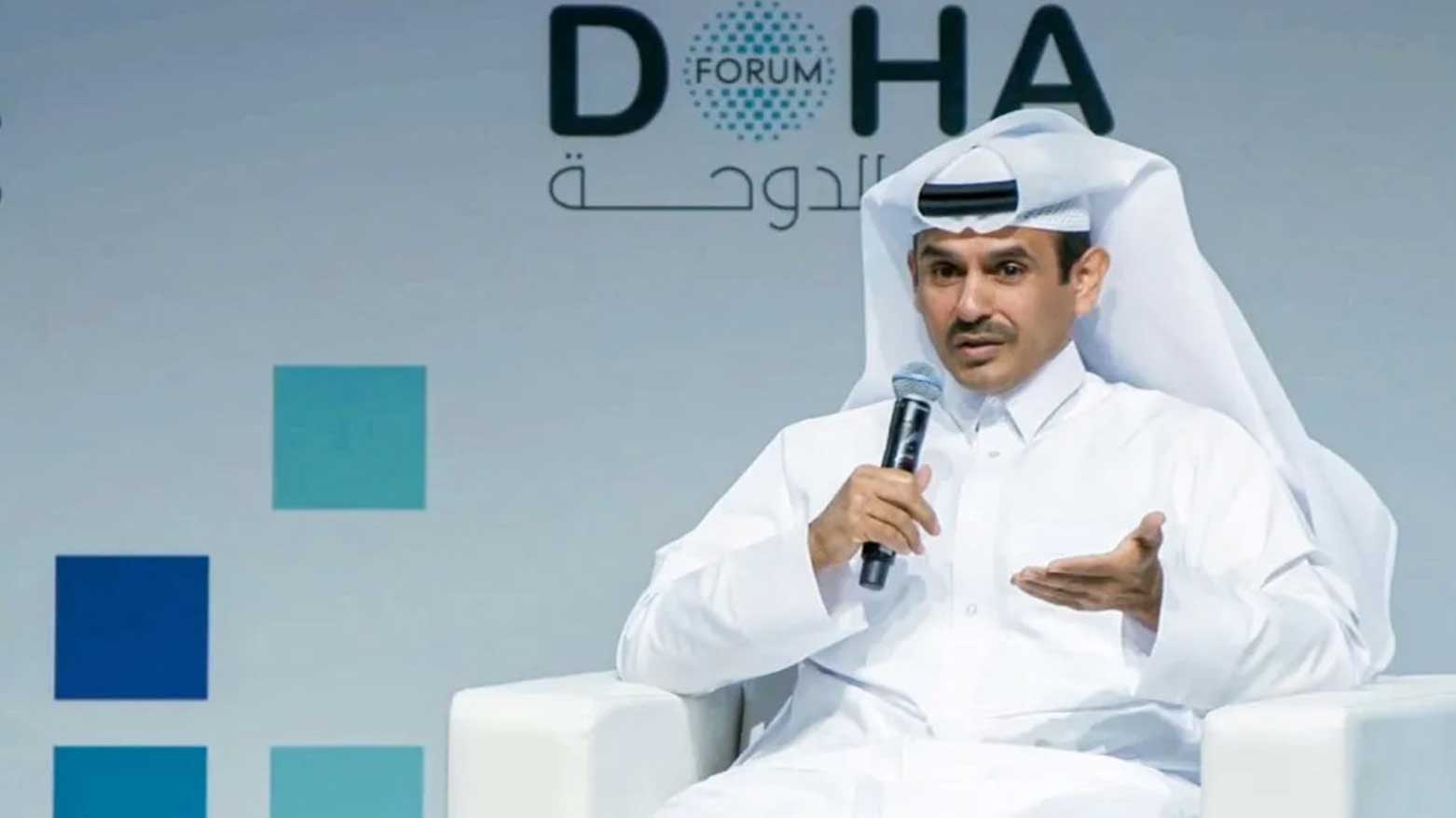Qatar Warns It May Halt Gas Supply to Europe Over EU Green Rules
EU member states risk undermining their own economies and driving up consumer prices with the bloc’s new sustainability regulations, Al-Kaabi warned.

ERBIL (Kurdistan24) — Qatar’s Energy Minister QatarEnergy CEO Saad Al-Kaabi on Monday warned that his country could suspend liquefied natural gas (LNG) exports to Europe if Brussels moves forward with enforcing its new Corporate Sustainability Due Diligence Directive (CSDDD), which mandates strict environmental and human rights compliance across global supply chains.
The directive—hailed by European lawmakers as a landmark step toward corporate accountability—requires major companies to identify and mitigate adverse environmental and human rights impacts in their operations worldwide. It also allows penalties of up to five percent of global turnover for non-compliance, a measure Qatar deems both excessive and commercially untenable.
European Union member states risk undermining their own economies and driving up consumer prices with the bloc’s new sustainability regulations, which compel major companies to tackle environmental harms in their global operations, Al-Kaabi warned.
“If Europe does not look at how they can water down or cancel the CSDDD, and still have a penalty of 5 percent of our total world turnover as a penalty, we will not be delivering LNG to Europe, for sure,” Al-Kaabi said at the ADIPEC energy conference in Abu Dhabi.
Qatar’s warning comes at a precarious moment for Europe. As temperatures drop, the continent faces its third winter since Russia’s 2022 invasion of Ukraine upended traditional energy flows.
European nations—under pressure to wean themselves off Russian gas to maintain sanctions leverage—have increasingly turned to Gulf and U.S. suppliers to fill the void.
Qatar, one of the world’s top LNG producers alongside the United States and Australia, has become a cornerstone of Europe’s new energy strategy. Countries such as Germany, Italy, and France have inked multi-billion-dollar contracts with Doha since 2022, viewing Qatari LNG as a stable and politically safer alternative to Russian pipeline gas.
A sudden suspension of those supplies could disrupt Europe’s fragile energy security and drive up prices across the continent. It would also undermine Brussels’ efforts to keep inflation under control and maintain domestic support for Ukraine’s war effort, as high energy costs remain one of the main political risks facing European governments.
Beyond its immediate economic implications, Qatar’s stance exposes the deepening fault lines between Europe’s climate ambitions and the fossil-fuel-dependent economies of the Gulf.
For Doha and other hydrocarbon exporters, the EU’s CSDDD represents not only regulatory overreach but also a signal that Europe’s energy transition could come at their expense.
The dispute risks straining what had been a strengthening partnership between Europe and the Gulf, particularly as Arab states seek to diversify export markets toward Asia, where environmental and human rights conditions are less politically sensitive.
Qatar has already signed long-term LNG supply agreements with China’s Sinopec and India’s Petronet—deals that could give it flexibility to redirect gas away from Europe if relations sour.
For Europe, such a loss would have strategic consequences. A reduced flow of Qatari gas would tighten global LNG markets, forcing European buyers to compete with Asian importers and potentially driving prices to levels not seen since the peak of the 2022 energy crisis. That would further weaken Europe’s economic resilience and complicate its effort to maintain unified pressure on Russia.
If Qatar follows through on its threat, the ramifications could reach far beyond energy markets. Europe’s ability to sustain military and financial support for Ukraine partly depends on economic stability at home.
A renewed energy shock could erode public backing for costly foreign commitments and embolden Moscow’s strategy of waiting out Western resolve.
At the same time, Moscow could benefit indirectly from any European energy squeeze. Higher global gas prices would boost Russia’s revenues from sales to China and India, while weakening the effectiveness of Western sanctions.
Qatar’s ultimatum underscores a wider transformation in the post-Ukraine energy order. The world’s top LNG exporters—Qatar, the U.S., and Australia—are now pivotal geopolitical actors, capable of reshaping alliances through energy diplomacy.
For Europe, the confrontation highlights the delicate balance between moral leadership on climate and human rights and the harsh realities of energy dependence in a volatile world.
As winter looms, the EU faces a defining test: whether it can sustain its green agenda without undermining the very security and solidarity that underpin its stance against Russia’s war.